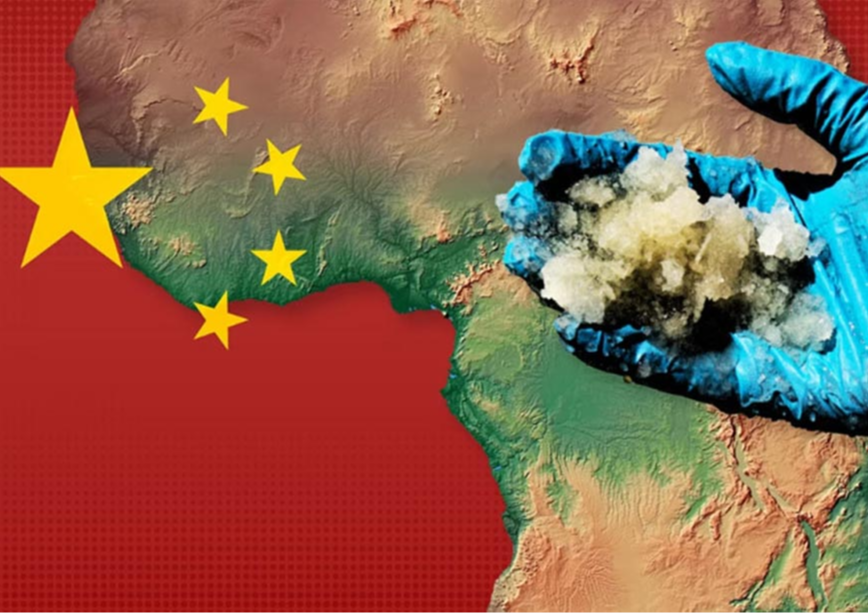
Dubbed ‘white gold’, Lithium holds high significance in modern technology and industry. Rechargeable Lithium-based batteries are essential to power electric cars and store solar and wind energy. Known for its high energy density and long lifespan, Lithium-ion batteries are also used for consumer electronic devices such as smartphones and laptops. As the world transitions towards clean and sustainable energy, the easy availability of lithium would arguably determine the effectiveness and capability of executing different renewable energy projects in the future.
And the rapid adoption of electric vehicles is putting pressure on lithium mining. As a matter of fact, by 2030, the demand for lithium is expected to surge more than five-fold. Currently, more than 80 percent of lithium mining occurs in Australia and three Latin American countries: Chile, Argentina and Bolivia, and later exported to China for processing.
[pullquote]As the world transitions towards clean and sustainable energy, the easy availability of lithium would arguably determine the effectiveness and capability of executing different renewable energy projects in the future.[/pullquote]
Over the years, China has attained a monopoly over a number of minerals’ supply chains, such as cobalt, lithium, and many rare earth metals. However, western governments and international companies are challenging the status quo and Africa could play a decisive role in this battle for lithium supremacy. In this regard, the ongoing dispute between the Namibian government and Chinese miner sets a precedent by underscoring the importance and the urgency for African countries to develop mining policies, export regulations, and strategies for using their abundant mineral resources.
What happened in Namibia?
The Kohero lithium mine is located around 250 km northwest of Windhoek, the capital of Namibia. The Namibian government and the Chinese mining corporation Xinfeng have been at odds over Xinfeng’s mining rights for a long time. In October 2022, accusing it of irregular shipments, the Namibian government banned Xinfeng operations in the Kohero mine. But, according to Xinfeng, they have only sent 75,000 metric tons of lithium ore to their Chinese headquarters for testing to design a lithium processing plant in Namibia. Subsequently, they ignored the government order and continued their operations as usual.
In April 2023, Namibia’s Mines Minister Tom Alweendo again accused Xinfeng of irregular practices in acquiring the licence and cancelled its mining licence. But when the Chinese miner successfully contested the Minister’s decision in Namibia’s High Court, the Court found that the mining licence should not be revoked and judged that the Minister did not follow the appropriate legal channel to revoke the licence and, therefore, cancellation doesn’t stand.
Furthermore, in June 2023, Namibia decided to completely forbid the export of unprocessed lithium and other critical minerals. This move aimed to support domestic processing and capitalise on the rising demand for metals used in clean energy technology. Undoubtedly, Zimbabwe, its neighbour, inspired this Namibian decision. Zimbabwe prohibited the export of raw lithium ore last December to discourage illicit mining and encourage domestic processing.
[pullquote]The Namibian government and the Chinese mining corporation Xinfeng have been at odds over Xinfeng’s mining rights for a long time.[/pullquote]
Nonetheless, Xinfeng decided to defy the government ban again and continued shipping raw lithium ore to China. On 19 October, to prevent Xinfeng, Namibian authorities ordered its police force to block any trucks moving raw lithium ore from the mine. While any shipment of unprocessed lithium violates government mandates, the use of police by the Namibian government may irk China and jeopardise the future of mining in the country.
Africa’s challenges to develop its lithium industry
Africa possesses about 5 percent of global natural lithium ore reserves. However, only a small select group of nations holds significant lithium reserves: the Democratic Republic of the Congo, Ethiopia, Ghana, Mali, Zimbabwe, and Namibia. These lithium-rich African countries aspire to raise the size of their processing and refining industries to earn a more significant portion of the profits from the global expansion in demand for battery materials.
However, establishing a large-scale lithium processing plant in any African country would require a regular supply of power, chemicals, and raw lithium. One more significant obstacle to lithium processing is the near-absence of transportation infrastructure. There is also the issue of erratic politics and corruption. Moreover, global politics and commodity markets are unpredictable. Prices for lithium hydroxide increased in 2022 and peaked in December at US$80,000 per tonne; since then, they have dropped to US$55,000. In reaction to this drop in price, many Western investors are planning to curtail their investment. Finally, anticipating potential lithium shortages, some are trying to develop alternatives, such as sodium-ion batteries.
China factor in Africa’s lithium journey
China is the world’s leading lithium refiner, controlling most of the lithium supply chain. Ironically, although China produces the majority of new energy vehicles worldwide, it has only a tiny portion of the world’s lithium reserves. In fact, China holds less than 7 percent of the world’s lithium reserves. Yet, China is the world’s largest importer, refiner, and consumer of lithium, purchasing 70 percent of lithium compounds and supplying 70 percent of the world’s lithium production, primarily to its domestic lithium battery manufacturers.
[pullquote]If African nations aspire to become an international hub for lithium, they must begin concentrating on cross-border infrastructure and logistics.[/pullquote]
As China relies on imports for about two-thirds of its raw material, since 2018, China has been on a spending spree to buy big lithium mines across the world. In the last few years, China has acquired two mines in Australia, three in Canada, two in Argentina, one in Zimbabwe, and one in the Democratic Republic of Congo. As per some estimates, by 2025, 705,000 tonnes of battery-grade processed lithium will come from Chinese-controlled mines around the world, up from just 194,000 tonnes in 2022.
For Africa, even if countries like Namibia or Zimbabwe process a small quantity of lithium domestically, they would still require decent highways to take their products to the international market. Ports are distant from most lithium operations in Africa. Further, a landlocked country like Zimbabwe must traverse a border to access any port. If African nations aspire to become an international hub for lithium, they must begin concentrating on cross-border infrastructure and logistics. If the necessary logistics are in place, the same infrastructure can be utilised to establish different kinds of businesses, including agribusiness and generate millions of new jobs.
However, constructing these infrastructures would cost a large sum of money. China is probably the only country that can afford to invest that much money so quickly. Indeed, Chinese financiers are far more likely to invest in risky projects than Western development and commercial banks.
[pullquote]China has been working on securing a steady supply of critical minerals, including lithium, for many years through various initiatives, including the Belt and Road Initiative.[/pullquote]
Some estimate that by 2030, Africa could provide one-fifth of the world’s lithium demand. Surely, Africa cannot benefit from this lithium boom without a competitive market with multiple companies from multiple countries. Therefore, a competitive market with competition among different Chinese companies as well as with companies from other developed nations such as Canada and Australia would augur well for Africa.
Way forward
Africa stands at a crossroads in its journey towards developing its lithium industry. A thriving lithium industry will undoubtedly contribute to the prosperity of Africa. China has been working on securing a steady supply of critical minerals, including lithium, for many years through various initiatives, including the Belt and Road Initiative. While United States and European officials have been pushing African cooperation and creating lists of essential minerals, Chinese businessmen have been purchasing African mines to generate critical minerals and constructing refineries at home to process the product. To develop its lithium industry, Africa would certainly require Chinese investments, at least in the short term, until others catch up.
And there lies the paradox. If Africa wants to reap the rewards from its lithium industry, it must step up its game and learn to tame the Dragon. The ongoing dispute in Namibia may set the precedence for other lithium-producing African countries to better negotiate with China. The course of the global energy transition may be determined by the effectiveness of Africa’s lithium exploration negotiations with China and other developed nations.
Samir Bhattacharya is Senior Research Associate at Vivekananda International Foundation.
The views expressed above belong to the author(s). ORF research and analyses now available on Telegram! Click here to access our curated content — blogs, longforms and interviews.




 PREV
PREV


